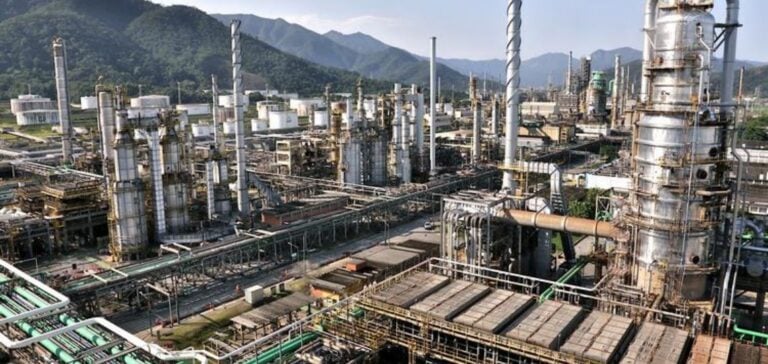The gap between gasoline prices in Brazil and import prices is widening, affecting fuel market dynamics.
The consortium of fuel importers, Abicom, reports that this gap reached 5% on September 6, influenced by the strength of the dollar against the real and a slight drop in international diesel prices.
This situation is creating opportunities for local refiners, who are seeing increased demand for domestic gasoline compared with imported cargoes.
Abicom data show that the average refinery gate price of gasoline in Brazil is 0.16 real per liter lower than international reference prices.
Diesel prices, meanwhile, show an average lag of 1% below import prices.
This market context encourages consumers to prefer domestic gasoline, complicating the competitive position of hydrated ethanol, whose sales depend on a competitive price.
Outlook for Price Stability
The stability of gasoline prices in Brazil seems to be confirmed, even in the absence of significant adjustments by industry players.
Sergio Araujo, President of Abicom, points out that the continuing uncertainty surrounding the dollar exchange rate should limit domestic price increases in the short term.
At the same time, Petrobras says it has no plans to cut prices to keep pace with low international oil prices, claiming it is “comfortable” with current refinery prices.
This strategy keeps gasoline prices stable, putting pressure on the ethanol market.
The ethanol market is under pressure due to stable gasoline prices.
Hydrated bioethanol (E100) must remain at 70% or less of the price of gasoline to remain competitive.
In major consumer markets such as São Paulo, this ratio remains at 66%, according to the latest ANP data.
This situation is prompting some ethanol producers to adjust their offers to avoid losing market share.
Impact on fuel supply and demand
The market is seeing adjustments in ethanol-producing regions such as Ribeirão Preto, where hydrated ethanol is quoted at 2,980 reals per cubic meter, recording a notable drop.
Local production units adjusted their offers to clear stocks in the face of storage space limitations and increased competition.
This movement has triggered similar reductions in distribution hubs such as Paulínia and Guarulhos, affecting producers’ margins.
The current dynamic is forcing distributors to adapt their strategies to the relative stability of gasoline prices and the variability of ethanol prices.
Industry players are closely monitoring market trends to adjust their pricing and supply policies.
Rapid price changes on international oil markets could further alter the price balance between domestic gasoline and imported fuels.





















